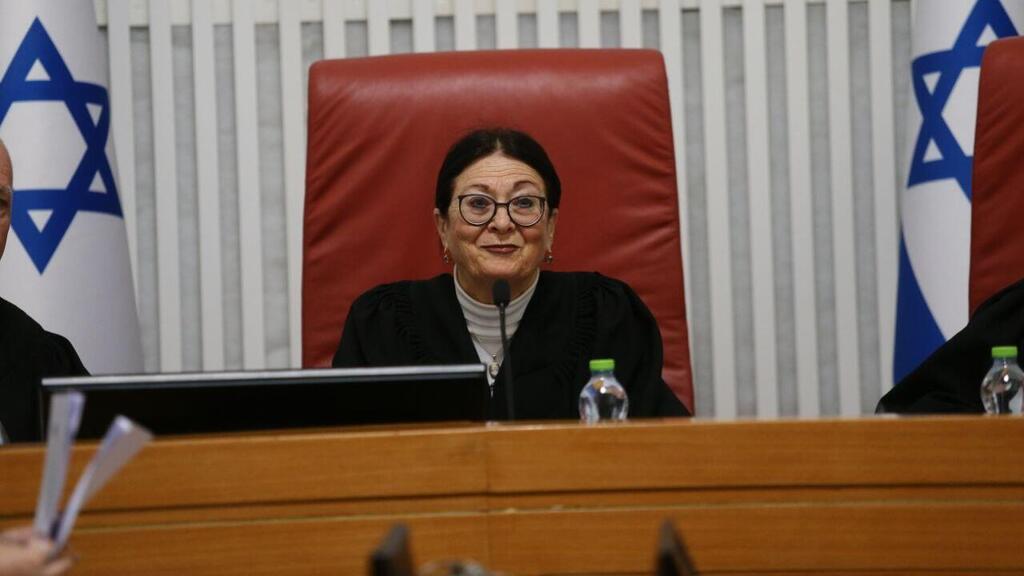What Prime Minister Benjamin Netanyahu’s justice minister presented to the Israeli public on Wednesday evening is not a program to upend Israel's judicial system. Because a proper amendment must come after a calculated process, especially when it intends to fundamentally change Israel’s system of checks and balances.
What exactly does Justice Minister Yariv Levin actually hope to repair? What major legislation proposed by his Likud party has ever been blocked by the Supreme Court? Was it the proposal to fix the housing crisis or rapidly rising cost of living? Was it finally introducing a constitution? Or, perhaps, legislation to annex the West Bank?
None of those matters were ever proposed in legislation and in fact, no other major legislation was ever been put to a test in the courts.
And what was the process taken in preparation before formulating the proposed overhaul - except the ceremonial reading of Levin's own speeches, analysis of right-wing pundits and receiving specific instructions from the Prime Minister's Office?
Levin presented only the first draft, and before there is any legislation, his program will undergo changes. Many potentially explosive articles will likely be removed, but the basic assault on the foundations of the existing form of government will remain.
What we are observing is a shameless onslaught on the judicial system. Levin calls for a series of sweeping changes aimed at curbing the powers of the judiciary, including by allowing lawmakers to pass laws that the High Court has struck down and effectively deemed unconstitutional.
The plan would empower the country’s 120-seat Knesset to override Supreme Court decisions with a simple majority of 61 votes. Levin also proposed that politicians play a greater role in the appointment of Supreme Court judges and that ministers appoint their own legal advisers, instead of using independent professionals.
If he were proposing an amendment to the system, he would have to explain who would remain to protect minorities from the tyranny of the majority, and what measures would be put in place to defend against tyranny in general?
If he were intending to legislate real reform, he would provide an argument acceptable not only to the diehard supporters of Netanyahu, but to the liberal right-wing constituents who voted for his party.
In his audacity, Levin quoted legendary Likud leader Menachem Begin, the first prime minister from the Right, who stood at the helm of a national-liberal movement and revered Israel's judiciary.
Begin served in the Opposition for many years, and was witness to the then-ruling Labor Party's abuse of their majority. He, and his political allies, received protection from the courts and provided the right-wing opposition at the time, with the justice they were seeking.
Levin is now set on destroying the court's ability to protect, not just the current opposition on the Left, but any opposition to the government in the future.
Begin said that Judges must not be chosen by the people and that they are expected to rule according to the law. He argued that those who ask whether five, seven or 11 people who were not elected by the voters, should be allowed to overrule decisions by people who were elected, were asking a misleading question.
"They are subverting the term the rule of the people," Begin said. "History has taught us that a democratically-elected majority can be used as a tool by those wishing to hide their tyranny," Begin said.
The current government is facing two real problems when it comes to the Israeli legal system, and both are personal, and not substantive.
One is that Netanyahu is faced with serious criminal charges for corruption, and if convicted, could be sent to prison. That possible scenario has surely not escaped the prime minister's mind.
The second is that legal precedent should prevent Arye Deri, a close Netanyahu political ally, from serving as minister - as he is set to do in the new coalition.
Levin justified his assault on the courts as a need for governance, and his campaign preceded Netanyahu's indictment. Until he was charged, the prime minister had always resisted such initiatives and vehemently defended and protected the courts.
But, only until the charges of bribery, fraud and breach of trust, were brought.
Associated Press contributed to this article.




